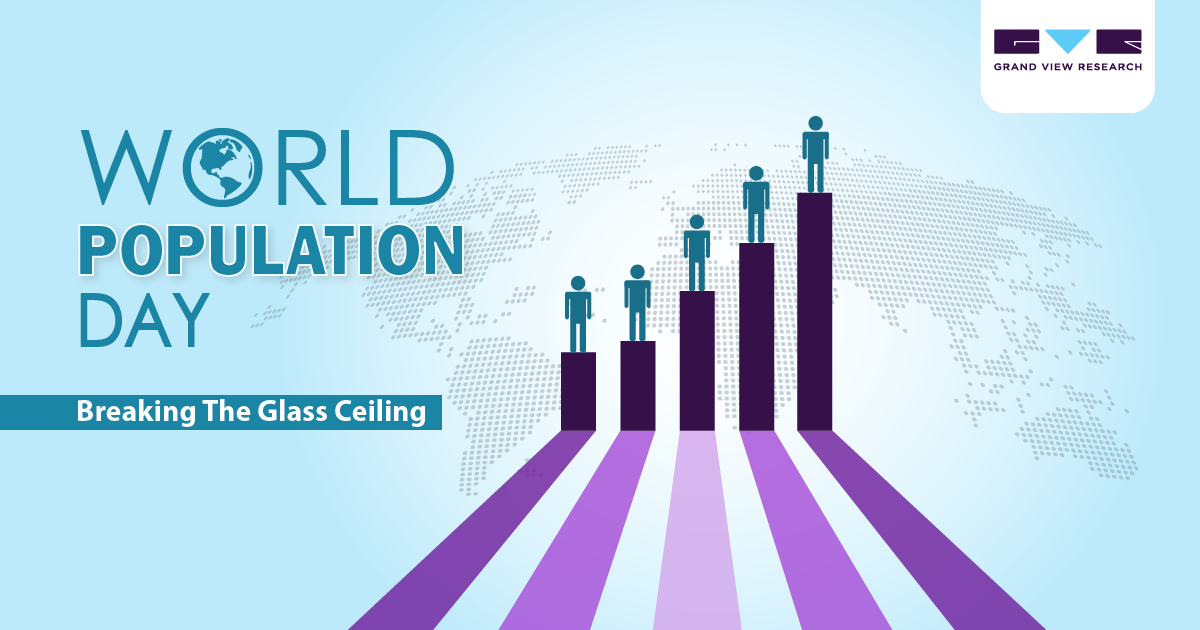World Population Day 2024: Breaking the Glass Ceiling
People globally celebrate July 11 as World Population Day as a reminder of the urgency to address population issues. Over the past two years, the world witnessed two defining moments: the global population officially logged 8 billion in November 2022 (1 billion people were added in merely 12 years). In April 2023, India overtook China to become the world’s most populous country. The event marked the first time since 1950 that China dipped to second place (in population rankings). The UN expects the global population to reach around 8.5 billion people in 2030 and 9.7 billion in 2050.

The unprecedented growth is largely attributed to burgeoning urbanization, migration, industrialization of agriculture, advancements in modern medicine and changes in life expectancy and fertility rates. An uptick in human lifespan comes on the back of advancements in public health, medicine, personal hygiene and nutrition. World population emphasizes fertility rate, sexual and reproductive health and gender parity in school enrolment, among others.
Why is World Population Day Celebrated?
The presence of international days predates the establishment of the UN. The seed of World Population Day was sowed from the ‘Day of Five Billion’ on July 11, 1987, when the population (global) touched 5 billion. This was the watershed moment in the global demography, prompting the UN General Assembly to observe World Population Day. It was July 11, 1990, when the first World Population Day was celebrated (with the participation of more than 90 countries). The international population day is celebrated to (including but not limited to):
-
Raise public awareness of global population issues;
-
Advocate for gender equality and women’s empowerment;
-
Access to reproductive health services;
- Help governments and societies to respond to economic, social and environmental changes.
The UN quotes “Our rich human tapestry is only as strong as its weakest thread.” International Population Day celebrations take the form of art and cultural events, awareness campaigns, collaborations, health services, clean-up drives and education workshops. Stakeholders are expected to emphasize population healthcare management, technological advancements and population screening to boost healthcare and achieve enhanced results.
Population Healthcare Management
As 2024 signifies the 30th anniversary of the International Conference on Population and Development (ICPD) Program of Action, women’s health and population healthcare management have received huge traction. The UN Indonesia noted that approximately 800 women succumb to pregnancy and childbirth every day, especially in developing economies. Predominantly, women’s sexual and reproductive health and reproductive rights are “cornerstones of sustainable development.”
Effective and robust population healthcare management has become indispensable for patients, health systems, communities and practitioners to reduce health disparities, minimize the cost of care and enhance the patient experience. For instance, in March 2024, the White House quoted the President of America, Joe Biden, alluding to the establishment of the first-ever White House Initiative on Women’s Health Research (Initiative). It will expedite research that will provide the tools to diagnose, prevent and treat conditions that impact women disproportionately, uniquely, or differently. In February, First Lady Jill Biden announced an investment of USD 100 million for women’s health research.
Investing in the Next Generation of Population Health
Advanced and developing economies expect AI and telemedicine to put wind in the sails of the health ecosystem. In essence, population health strives to enhance mental, physical and social well-being by assessing lifestyle choices, socioeconomic factors, genetic predispositions and environment. The AI-powered integration of health data into a comprehensive view of the population harmonizes data from environmental factors, genomic sequences, electronic health records and behavioral insights.
Lately, machine learning and deep learning have become vital cogs to boost personalized and preventive healthcare strategies and underpin the accuracy of health predictions. Besides, generative AI has amassed popularity to foster the efficiency and effectiveness of population health initiatives. To put things in perspective, generative AI’s simulation capabilities help create a virtual model that can forecast the response of different population segments to certain healthcare strategies. Moreover, predictive analytics has come to the fore to identify risk factors and boost adherence to healthy habits.
Population-based Screening
Population screening has gained prominence against the backdrop of a surge in diseases across North America, Europe and Asia Pacific. Screening is vital to identify allegedly healthy people who may be at a high risk of a disease or a condition. For instance, in the Netherlands, people aged between 55 and 75 are invited to be tested every two years.
Soaring cases of colorectal cancer, breast cancer and cervical cancer have furthered the need for population screening. According to data extracted by Eurostat in July 2023, at least 80% of women between the ages of 50 and 69 years had been screened for breast cancer in Finland, Denmark and Sweden (in 2021 within the previous two years). In June 2024, the U.S. CDC inferred that 42,211 females succumbed to breast cancer in 2022.
Upshot
International Population Day is an apt occasion to discuss the challenges and opportunities for global demography. The adoption of AI, ML and multifaceted health data has redefined modern population health management; the trend is likely to continue in the ensuing period. The ‘Day’ also serves as a reminder and provides a platform to invest in innovative and advanced solutions for a sustainable future.
To schedule a free market intelligence database demo, please complete the form below:
Service Guarantee
-
Insured Buying
This report has a service guarantee. We stand by our report quality.
-
Confidentiality
Your transaction & personal information is safe and secure.
-
Custom research service
Design an exclusive study to serve your research needs.
-
24/5 Research support
Get your queries resolved from an industry expert.